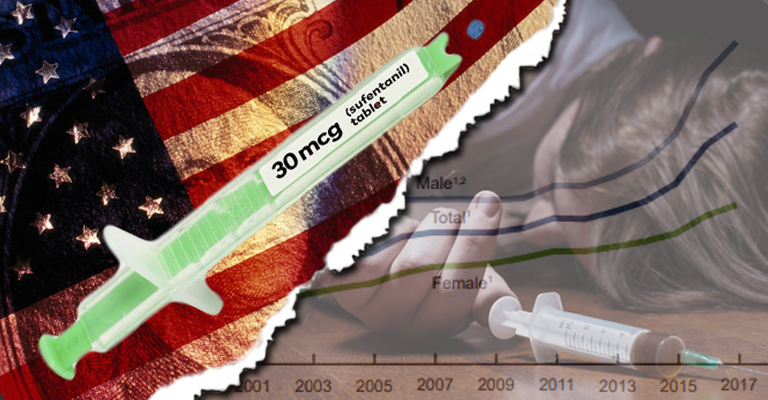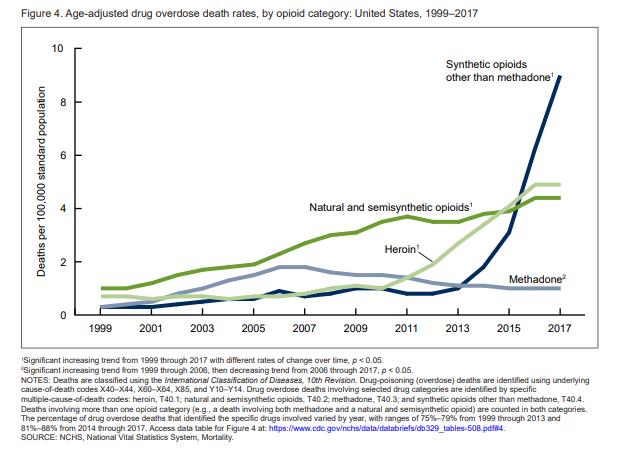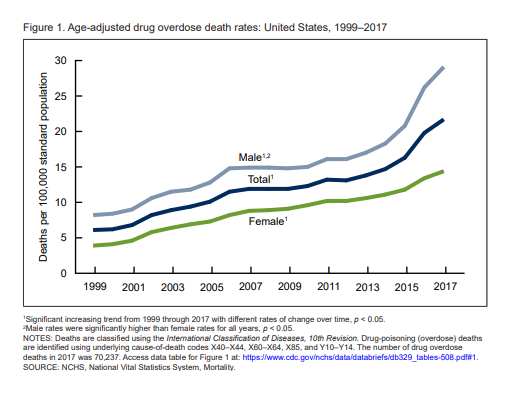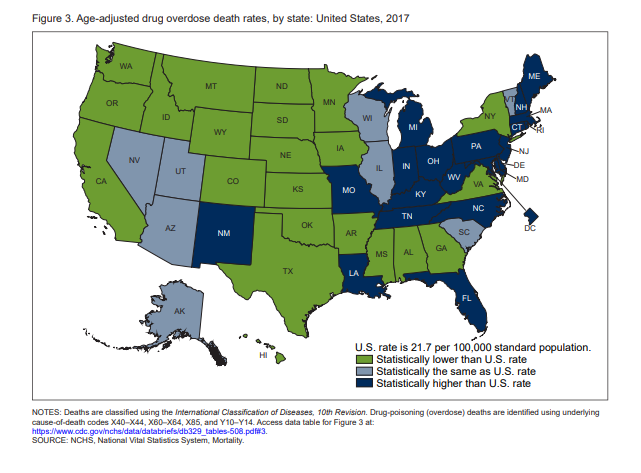Health
As FDA Approves Drug 1000x Stronger Than Morphine, Overdose Deaths Set Horrifying New Record

Less than a month after the FDA approved a new synthetic opiate that is 1000 times stronger than morphine, the Center for Disease Control has released disturbing new data on the rate of overdoses in the US.
The report found that 70,237 people died from drug overdoses in 2017, a 9.6 percent increase from 2016. Overdose rates from synthetic opioids also skyrocketed by 45 percent accounting for nearly 30,000 of the total fatalities. According to a report by the New York Times drug overdoses now account for more deaths than H.I.V., car accidents, or gun violence at their peaks.

Since 1999, the age-adjusted rate of overdose deaths increased from 6.1 per 100,000 people in 1999 to 21.7 in 2017. While overdose rates increased, on average, 10 percent per year from 1999-2006 they dropped significantly from 2006-2014 increasing by 3 percent per year. However, from 2014-2017 they have increased by 16 percent per year.

Across the country numbers reveal that West Virginia, Ohio, and Pennsylvania had the highest observed drug overdose rates while Texas, North Dakota, South Dakota, and Nebraska were the 4 states with the lowest overdose rates. Data also shows that overdose rates in the nation’s capital were above the national average.

The CDC found that suicide rates also increased in 2017 by 3.7 percent contributing to a 0.1 year drop in the country’s life expectancy. In a statement CDC director Robert Redfield said,
“The latest CDC data show that the U.S. life expectancy has declined over the past few years. Tragically, this troubling trend is largely driven by deaths from drug overdose and suicide.”
The numbers released by the CDC come less than a month after the FDA approved the new painkiller Dsuvia. As reported earlier this month, Dsuvia is a synthetic opioid that is 10 times stronger than Fentanyl, the drug blamed for the record number of drug overdoses in 2017.

Although heroin is traditionally blamed for the country’s rising opioid death toll the numbers tell a much different story. According to senior public health scientist at the research group RTI International Jon Zibbell,
“If we’re talking about counting the bodies, where they lie, and the cause of death, we’re talking about a fentanyl crisis.”
Despite mounting criticism of Dsuvia’s potential for abuse the FDA defended their decision to approve the drug stating it would be subject to “very tight” regulations. In a written statement FDA Commissioner Scott Gottlieb said,
“We’ve learned much from the harmful impact that other oral opioid products can have in the context of the opioid crisis. We’ve applied those hard lessons as part of the steps we’re taking to address safety concerns for Dsuvia.”
While the government continues paying lip service towards addressing the opioid epidemic and overdose rates break new records year after year, there is hope ahead. In August, the DEA announced they are increasing the amount of cannabis that can be grown by 500 percent in an effort to fight the opioid crisis.
A growing number of studies have begun studying the effects of cannabis in treating neuropathic pain. The National Institute of Health has come out in support of this research stating, “Medical marijuana products may have a role in reducing the use of opioids needed to control pain.”
Until we stop allowing corrupt politicians and bureaucrats to put profits over people, thousands of Americans will continue dying for reasons that are, far too often, preventable.
Typos, corrections and/or news tips? Email us at Contact@TheMindUnleashed.com
